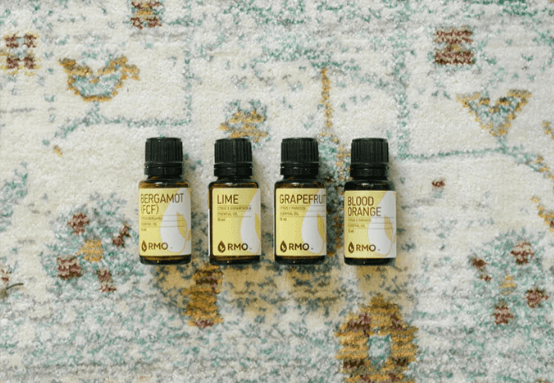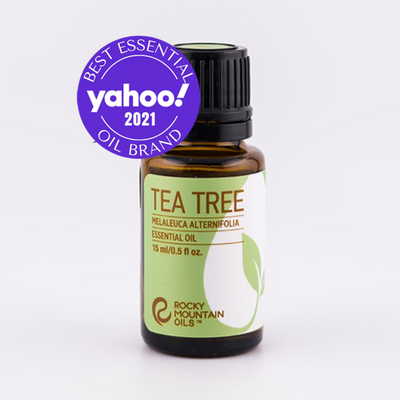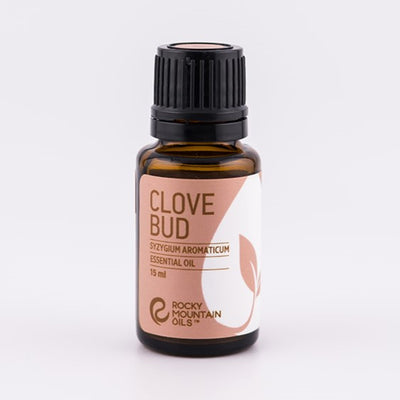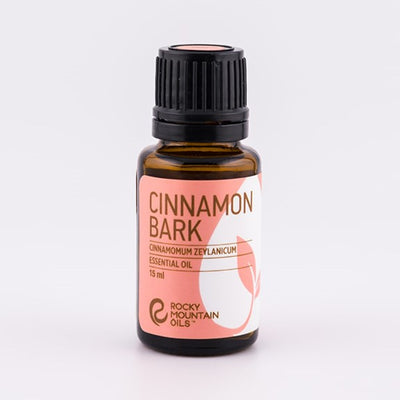What Essential Oil Repels Ants Best? Uncover the Natural Guardian of Your Home
The fight against household pests, particularly ants, has been a perennial challenge for homeowners. The quest for a practical yet non-toxic solution leads us to the bountiful realm of essential oils. Nature's essence offers a barricade against these tiny invaders, with certain oils standing out for their remarkable repelling powers.
What Essential Oil Repels Ants
Diving into the heart of our topic, we explore the potent essential oils identified as formidable foes to ants. Through anecdotal evidence and scientific research, there's a clear front-runner in the world of natural ant repellents: peppermint oil. This isn't to overshadow the efficacy of its citrusy and herbal comrades, which also pack a punch in the ant-deterrent department. In the subsequent sections, we'll unravel why these oils are so effective, how they should be used, and what makes them a superior choice for the eco-conscious consumer.
The Essence of Essential Oils
Defining Essential Oils
At their core, essential oils are potent plant extracts that maintain the natural smell and flavor, or "essence," of their source. These volatile compounds are obtained through distillation (steam and water) or mechanical processes, such as cold pressing. Once extracted, they embody the flavor, scent, and beneficial properties of the plant.
History and Traditional Uses
Essential oils can be delineated back thousands of years, with their roots deep in the traditions of ancient civilizations like Egypt, India, China, and Rome. They were employed for a variety of purposes, ranging from spiritual to therapeutic to cosmetic.
Extraction and Composition of Essential Oils
Essential oils comprise a complex mixture of chemical compounds, which can vary depending on the time of day, season, geographic location, method and duration of distillation, year grown, and the weather, making every batch unique. This intricate composition contributes to the oil's ant-repelling qualities.
The Antagonism Between Ants and Essential Oils
The Sensory World of Ants
Ants rely heavily on their sense of smell for navigation, communication, and survival. Disrupting these scent trails with solid odors can disorient and repel them, which is where essential oils come into play.
How Essential Oils Affect Ant Behavior
The aromatic scents of essential oils are believed to overpower the pheromone trails ants use to navigate, thus creating a natural barrier. This makes essential oils an effective deterrent in keeping ants away from your home.
The Chemistry of Repellence
The constituents of essential oils can act as natural pesticides. For example, compounds like eugenol in clove oil have been noted for their insecticidal properties. When used correctly, these compounds can provide a repelling effect without harming the environment.

Tea Tree Oil: The Potent Ant Adversary
Composition and Strength
Tea Tree Oil boasts formidable ant-repelling qualities due to its potent composition. Its effectiveness stems from the unique compounds it contains, which discourage ants. These components make it a powerful choice for keeping ants at bay.
Lavender Oil: The Aromatic Ant Deterrent
The Calming Effects of Lavender on Humans vs. Ants
Lavender has a calming effect on humans due to its soothing aroma, often used in aromatherapy to reduce stress and promote relaxation. In contrast, lavender does not have the same calming effects on ants, as they do not possess the olfactory receptors or cognitive responses that humans have to its scent.
Blending Lavender with Other Oils for Enhanced Effect
Blending lavender oil with other essential oils, such as chamomile and frankincense, can enhance its calming and soothing effects, creating a harmonious and relaxing aromatherapy experience. Experimenting with different oil combinations allows you to customize the aroma and potential therapeutic benefits to suit your preferences and needs.
Eucalyptus Oil: An Unwelcome Scent for Ants
The Sharp Scent Profile of Eucalyptus
Eucalyptus boasts a sharp scent profile characterized by its invigorating and menthol-like aroma, with notes of cool, crisp freshness that can help clear nasal passages and promote a sense of revitalization and clarity. Its fragrance is often associated with a clean, medicinal quality, making it a popular choice in aromatherapy and various personal care products.
Dilution and Application Tips
When using Eucalyptus oil, it's important to dilute it with a carrier oil, such as coconut or jojoba oil, to avoid skin irritation or sensitization. For application, you can add a few drops of the diluted oil to a diffuser for aromatherapy or mix it with a carrier oil for topical use, but always perform a patch test first to check for any adverse reactions.
Clove Oil: The Spicy Barrier
The Efficacy of Eugenol
Clove oil contains a potent compound called eugenol, which serves as an effective barrier against ants due to its repellent properties. Eugenol in clove oil acts as a natural deterrent, making it an eco-friendly way to keep ants away from specific areas.
Precautionary Measures with Clove Oil Usage
When using clove oil, it's important to exercise caution due to its potency. Always dilute it with a carrier oil, and perform a patch test on your skin to check for any adverse reactions before using it topically.
Cedarwood Oil: Nature’s Ant Repellant
The Woody Scent That Repels Ants
Cedarwood oil is a natural repellent for ants due to its woody scent, which ants find unpleasant and avoid. Its properties make it effective in keeping ants away from certain areas where it is applied.
Incorporating Cedarwood Oil in Pest Control
Using cedarwood oil in pest control involves incorporating it into your regular pest management practices. This natural remedy can be applied strategically to repel and deter pests effectively, making it a practical and eco-friendly addition to your pest control routine.
Understanding Ants' Aversion to Essential Oils
The Biology of Ant Repulsion
Here, we'd explore how the biological makeup of ants contributes to their aversion to certain scents, particularly those present in essential oils.
The Impact of Essential Oils on Ants' Communication Systems
A deep dive into how essential oils interfere with the pheromones that ants use to communicate, thus disrupting their social structure.
Essential Oils vs. Synthetic Repellents: Ants' Reactions
Essential oils, derived from plants, are often preferred over synthetic repellents by those seeking a natural alternative for repelling ants. Ants may react differently to essential oils due to their strong scents, which can disrupt the ants' chemical communication and foraging patterns, making them avoid treated areas.
Cinnamon Oil: The Sweet Smell of Ant Prevention
The Constituents of Cinnamon Oil
It details the specific components of cinnamon oil that are offensive to ants and disrupt their sensory navigation.
Practical Application in Home
Cinnamon oil, with its pleasant aroma, can be effectively used in homes as a natural way to deter ants. Simply apply a few drops of cinnamon oil in areas prone to ant infestations to create a fragrant barrier that ants dislike, helping to prevent their entry into your living spaces.
Thyme Oil: The Herbaceous Guard
Thyme Oil's Active Ingredients
We were discussing the terpenes found in thyme oil that have ant-repellent properties.
DIY Recipes for Thyme Oil Repellents
DIY recipes for thyme oil repellents involve mixing thyme essential oil with a carrier oil like olive or coconut oil to create a natural insect repellent. Thyme oil's strong aroma acts as a deterrent for insects when applied to the skin or sprayed in areas where you want to repel them.
Lemongrass Oil: Citral as an Ant Deterrent
Understanding Citral and Its Effects
Lemongrass oil contains a compound called citral, which acts as an effective ant deterrent by disrupting the ants' communication and navigation abilities through its strong odor and chemical properties. Citral interferes with the ants' pheromone trails, making it difficult for them to locate food sources and establish colonies in treated areas, ultimately deterring their presence.
Making and Using Lemongrass Oil Sprays
To make homemade lemongrass oil sprays for ant prevention, first, mix a few drops of pure lemongrass essential oil with water in a spray bottle. Then, spray this mixture along entry points, ant trails, and other areas where ants are present to deter them from entering your home.
Neem Oil: The Bitter Enemy of Ants
The Properties of Neem Oil
Neem oil serves as a formidable adversary against ants due to its inherent bitterness, which repels these insects effectively. This bitter quality of neem oil disrupts ant behavior and discourages them from invading treated areas.
Application of Neem Oil in Gardens
Neem oil is commonly applied in gardens as a natural and eco-friendly solution to prevent ant colonies from damaging plants. To use it, mix neem oil with water according to the product's instructions, then spray the solution directly onto the affected areas of the garden, creating a barrier that deters ants and protects your plants.
Integrating Essential Oils into Your Ant Control Strategy
Creating a Comprehensive Ant-Repellent Plan
To integrate essential oils into your ant control strategy, start by identifying problem areas and potential entry points for ants in your home. Then, choose essential oils known for their ant-repelling properties, such as peppermint, lavender, or lemon, and dilute a few drops in water. Apply this mixture to entryways, cracks, and ant trails as a natural repellent. Additionally, maintain a clean environment, seal food containers, and fix any leaks to create a comprehensive ant-repellent plan that combines essential oils with good hygiene practices for effective and holistic ant control.
Safety Considerations and Best Practices
When using essential oils for ant control, ensure proper dilution, ventilation, and storage, while also conducting patch tests to prevent adverse reactions. Additionally, label containers, keep oils out of reach of children and pets, and consider alternative methods if you have allergies or respiratory conditions for a safe and effective approach.

The Environmental Impact of Using Essential Oils for Ant Control
Sustainability and Essential Oils
Using essential oils for ant control can have a lower environmental impact compared to chemical repellents because essential oils are often derived from natural sources and are biodegradable, reducing harm to ecosystems and waterways. Additionally, essential oils are generally less toxic to non-target organisms, making them a more sustainable choice for pest management.
Responsible Sourcing of Essential Oils
Selecting essential oils that are responsibly sourced is crucial for ecological responsibility because it helps preserve biodiversity, promotes ethical labor practices, and ensures the long-term availability of these natural resources. By making informed choices in our essential oil purchases, we can contribute to a more sustainable and environmentally friendly future.
Which essential oil do ants hate?
Peppermint essential oil is known to be a natural ant repellent. Ants dislike the strong scent of peppermint, which can disrupt their pheromone trails and discourage them from entering a particular area.
To use it as a repellent, you can dilute a few drops of peppermint essential oil in water and spray it around entry points or areas where ants are a problem. This can help deter them and keep your home or space ant-free.

How does essential oil kill ants?
Essential oils can be effective in repelling or killing ants due to their strong scents and chemical properties. When ants come into contact with certain essential oils, such as peppermint, cinnamon, or citrus oils, the strong odor can disrupt their scent trails and communication, making it difficult for them to navigate.
Additionally, some essential oils contain compounds that are toxic to insects, which can lead to their death upon contact or ingestion. These oils act as natural insecticides, providing a non-toxic and environmentally friendly way to control ant infestations.
However, it's important to note that the effectiveness may vary depending on the type of essential oil and the specific species of ants, so experimentation and careful application are often necessary for successful ant control.
Does lavender oil kill ants?
Lavender oil has natural insect-repellent properties and a strong scent that can deter ants and other insects. While it may not necessarily "kill" ants on contact like chemical insecticides, it can help keep them away from certain areas when used as a deterrent.
Placing cotton balls soaked in lavender oil near ant entry points or using a diluted lavender oil spray in affected areas can help repel ants. However, for a more effective approach to ant control, it's often recommended to combine lavender oil with other natural or commercial ant-control methods to address the root of the ant infestation.
Frequently Asked Questions (FAQs)
What are the most effective ways to apply essential oils to repel ants?
To effectively use essential oils for ant repellence, consider these methods:
- Cotton Ball Diffusion: Soak a cotton ball in your essential oil of choice and place it in areas where ants enter or congregate.
- Spray Solution: Mix a few drops of essential oil with water and mild dish soap to emulsify the oil. Spray this mixture along ant trails and entry points.
- Oil Barriers: Apply a thin line of essential oil directly on windowsills, doorways, or other entry points. Most ants will not cross an oil barrier.
- Refresh Regularly: Essential oils tend to evaporate or degrade over time, so it's crucial to reapply every few days for continued effectiveness.
Always test the oil in a small area first to ensure it doesn't damage surfaces or leave a residue.
Can essential oils harm beneficial insects in the garden?
Yes, essential oils can affect beneficial insects. They are non-selective and can deter or harm insects like bees or ladybugs. It's crucial to apply essential oils in a targeted manner, away from flowering plants where pollinators are active. Also, using them in the evening can help minimize the impact on beneficial daytime insects.
How often should I reapply essential oils for them to remain effective?
Essential oils generally need to be reapplied every 1-2 weeks, depending on the oil's volatility, weather conditions, and the severity of the ant problem. Indoors, applications may last longer, especially if not exposed to sunlight or air currents. It’s best to monitor the situation and reapply when you notice the number of ants beginning to increase again.
Are there any essential oils that should be avoided around pets?
Yes, some essential oils are toxic to pets, especially cats and dogs, and should be used cautiously. Oils like tea tree, peppermint, and citrus can be harmful if ingested or applied to their skin. Always keep oils out of reach of pets, and consider consulting with a veterinarian before use.
What can be done if an ant infestation persists despite using essential oils?
If an ant infestation continues, consider these steps:
- Identify and Eliminate Sources: Make sure no food sources are attracting them. Keep your space clean and store food in airtight containers.
- Seal Entry Points: Caulk cracks and crevices around your home's exterior to prevent ants from entering.
- Professional Help: For persistent problems, consult a pest control professional who can identify the ant species and provide a targeted treatment plan.
Conclusion
In concluding our aromatic exploration, it becomes clear that understanding what essential oil repels ants unlocks a potent defense against their invasion. These oils not only serve as a safe and natural shield for our homes but also infuse our living spaces with sensory delight. Armed with the right knowledge and application, the battle against ants can transform into a fragrant triumph.




